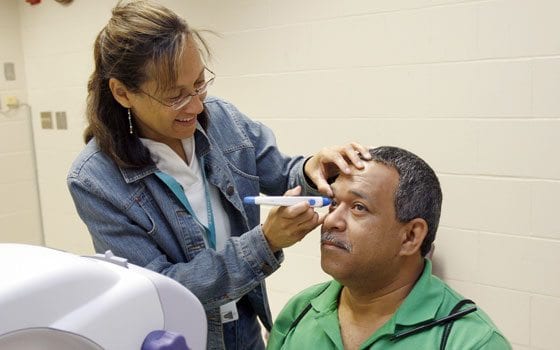

Men’s Health Summit seeks to increase health awareness
“There is a silent health crisis in America … it is the fact that, on average, American men live sicker and die younger than American women,” said Dr. David Gremillion on the Men’s Health Network. According to the National Center for Health Statistics’ National Health Interview Survey, in 2005, African American men were 1.3 times more likely to lack a regular source of health care than white men and Latino men were 2.3 times more likely to lack a regular source of health care.
Whittier Street Health Center is creating awareness about the importance of health among African-American and Latino men at its annual free Men’s Health Summit on Saturday, June 11, at the Reggie Lewis Track and Athletic Center in Roxbury. This year’s keynote speaker is Roberto Clemente Jr., the son of legendary baseball player Roberto Clemente.
“Forty-six percent of our adult patient population are men, which is very high for an urban health center,” according to Frederica Williams, president and CEO of Whittier Street Health Center. “With events like the Summit, we proactively reach out into the community to provide health education and screenings to help men take better control of their health and connect to health care.”
According to the Boston Public Health Commission’s 2010 Health of Boston report, in 2008, black men in Boston were 3.3 times more likely to die from prostate cancer than white men. Additionally, both black and Latino residents of Boston were nearly four times more likely to be hospitalized due to diabetes than white residents. A recent needs assessment conducted by Whittier Street Health Center through a grant funded by the Massachusetts Department of Public Health found only a third of men in its target area (Roxbury, Mattapan, Dorchester, South End, Jamaica Plain and surrounding communities) eat the recommended servings of fruits and vegetables, less than half regularly exercise and only half get regular medical physicals.
Whittier is reaching out to the men in the community and their families to address some of these unhealthy lifestyles. Through its recently established Project 1-3-5 program in partnership with the Y of Greater Boston, Whittier is reaching out to those who are most at risk for future chronic diseases.
“It will help men of color living in the community adopt healthier lifestyles regarding diet, exercise and preventative health,” said Williams. The program is named 1-3-5 as a reference to getting at least one yearly check up, exercising three days a week and eating five servings of fruits and vegetables each day. Men interested in the program will have the opportunity to sign up for it at the upcoming health summit.
The Men’s Health Summit features Roberto Clemente Jr., the son of legendary baseball player Roberto Clemente. He is the founder of the Reviving Baseball in the Inner-Cities Program (RBI) in his native Puerto Rico, which is aimed at helping at-risk youth through the sport in San Juan.
In addition to RBI, Clemente Jr. also established the Roberto Clemente Foundation benefiting children in the Pittsburgh community, which is where Clemente Sr. spent his major league career. Clemente Jr. played for the San Diego Padres and Baltimore Orioles before a series of injuries forced him to retire in 1989.
The summit will provide free health screenings, health and social resources, Wii Tournament games, live entertainment and a panel discussion on men’s health. Men’s Health Awards will also be presented to various champions of men’s health within the community. For more information on the summit, visit www.wshc.org or call 617-989-3028.
This space was donated to Whittier Street Health Center by Brigham and Women’s Hospital and Partners HealthCare, who have had a longstanding relationship with Whittier.






